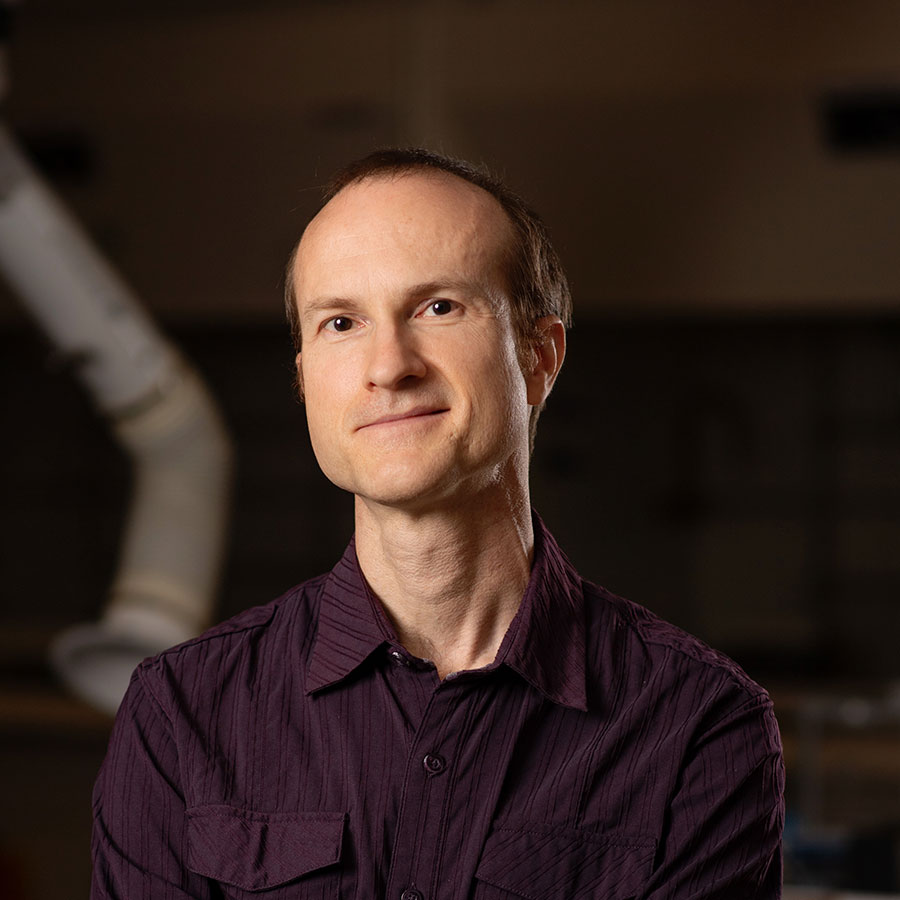

Chemistry
Spark curiosity & fuel exploration.
Whitman is one of the best colleges in the Northwest for Chemistry majors, offering a distinctive blend of small class sizes, hands-on learning, and faculty who love teaching and are active researchers. At Whitman, you’ll get personalized instruction from exceptional professors, and you’ll develop the scientific skills necessary to tackle real-world problems. You’ll gain experience with state-of-the-art scientific instruments and lab equipment—starting with your very first Chemistry class. Plus, you’ll have opportunities to do independent research and learn outside the classroom, preparing you for success in both graduate school and science-related careers.
3 Reasons to Study Chemistry at Whitman
Interested in Chemistry?
We’d love to send you information, including more on academic majors and student life at our beautiful campus in Walla Walla, Washington.
“I cannot overstate how instrumental the Chemistry professors have been in my undergraduate education. Without the high caliber of professors and research experience, I likely would not have chosen to major in Chemistry. They care about their students both as budding chemists and as people: athletes, musicians, actors and community members.”
Our Whitman Student Voices BlogFaculty
Courses in Chemistry
See just a few of the fascinating courses you might take.

Advanced General Chemistry
Students with a strong high school background in chemistry are encouraged to enroll in this accelerated course, which packs a year’s worth of General Chemistry content into one fast-paced semester. Here and in the accompanying lab, you’ll build on the skills you learned in high school, reviewing the nature and composition of matter and the laws that govern chemical reactions.

Organic Chemistry I
In this class, you’ll begin your exciting study of the chemical reactions related to life. You’ll learn about stereochemistry, spectroscopy, and the synthesis and reactions of carbon-containing compounds like alkyl halides, alkenes, alcohols, ethers, and alkynes. And in the lab, you’ll learn hands-on skills in recrystallization, distillation, chromatography and extraction.

Computational Chemistry: Structure and Reactivity of Organic Molecules
This course will introduce you to the application of quantum mechanics to organic molecules—and give you valuable experience with sophisticated quantum chemistry computer software. In a combination of lectures and hands-on tutorials, you’ll learn about topics like molecular orbital theory, conformational analysis, aromaticity and much more.

Instrumental Methods of Analysis
In this course, you’ll learn how to prepare samples, analyze data, and develop methods for studying chemical reactions. You’ll learn hands-on applications of instrumental techniques like flame atomic absorption spectroscopy, capillary electrophoresis, scanning electron microscopy, gas chromatography, and more. The lab teaches you real-world applications of chemical analysis and may even include. a field trip to an industrial chemistry lab.

Drug Design
This course teaches you how pharmaceuticals work in the body. You’ll learn how drugs are designed based on their predicted interactions with biomolecules. By looking at case studies of how organic molecules bind, you’ll learn about the medicinal properties of drugs and current drug development strategies.

Chemistry Seminar
In this yearlong course, you’ll meet a variety of scientists from colleges, universities, government labs and industry. Presenters will span a range of areas of chemistry and related disciplines like structural biology and environmental science. You’ll learn to engage in the scientific conversation by reading scientific journal articles, writing responses and asking questions of visiting scientists.
Combined Majors

Amazing Experiences You Can Pursue
Connect with fellow students. At Whitman, you can pursue your passions and connect with other science-minded students. Maybe you’ll work as a Chemistry writing fellow coaching other students. Or you could be a student liaison for the STEM Hub, Whitman’s gateway for STEM resources. These experiences will not only enhance your understanding of Chemistry but also prepare you for success in graduate school or a rewarding career in the sciences.
Gain valuable research experience. The Chemistry Department offers students the opportunity to be involved in faculty-led research projects based on their interests. This hands-on experience will enhance your technical and analytical abilities and help build your networking, communication and time management skills.
Get a global perspective. At Whitman, you can study abroad in one of our many Off-Campus Studies programs. Studying chemistry abroad gives you valuable exposure to other educational systems and connections to scientists outside the U.S. Enrolling directly in another university or a cultural immersion program conducting field research can be life-changing.
What Our Graduates Are Doing Now
Your Questions Answered
From your first chemistry class to your senior thesis, you will develop valuable skills as a Chemistry major that are crucial both within and outside the field of chemistry. These include analytical/quantitative skills, technical skills, problem-solving, critical thinking, attention to detail, communication, teamwork and collaboration, research, time management, and more. These skills not only prepare you for specific careers in chemistry but also provide a strong foundation for diverse roles in other scientific fields, business, law, medicine and beyond. They will enhance your ability to adapt, innovate and excel in a rapidly changing job market.
Chemistry is often called the central science. It serves as a bridge connecting physics, biology and other natural sciences. So your Chemistry courses will cover various complex topics and subdisciplines (e.g., organic, inorganic, physical, analytical, and biochemistry). Majoring in Chemistry can be challenging, but it is also highly rewarding. Most courses include lab work, which requires precision, attention to detail, and significant time management. And mastering concepts in your early courses is crucial for success in more advanced topics. A Chemistry major can be incredibly fulfilling despite these challenges, providing a strong foundation for different career paths and further education.
A degree in Chemistry opens up career opportunities in various industries. Each career path can offer a fulfilling and dynamic professional life, using the analytical, problem-solving and technical skills you learned through a Chemistry degree. Some key possibilities include:
-
- Pharmaceuticals and biotechnology: chemist/biochemist, clinical research scientist.
- Environmental science: environmental chemist, toxicologist, water quality scientist.
- Forensic science: chemist/crime lab analyst.
- Industry and manufacturing: chemical engineer, quality control chemist, material scientist.
- Education and research: academic researcher, chemistry professor, science educator.
- Food and beverage industry: food and flavor chemist.
- Energy and sustainability: petrochemical and renewable energy chemist.
- Government and regulatory agencies: regulatory affairs specialist, public health chemist.
- Consulting: chemical consultant.
- Intellectual property law: patent lawyer.
- Entrepreneurship: startup founder.












